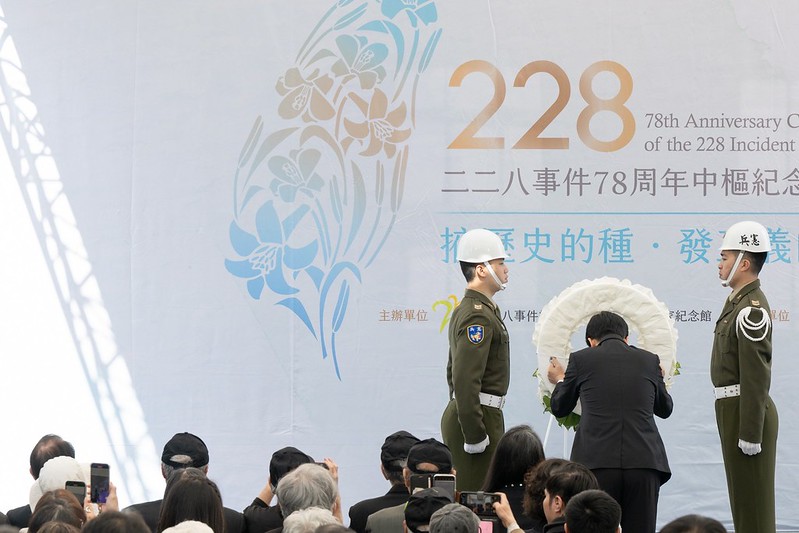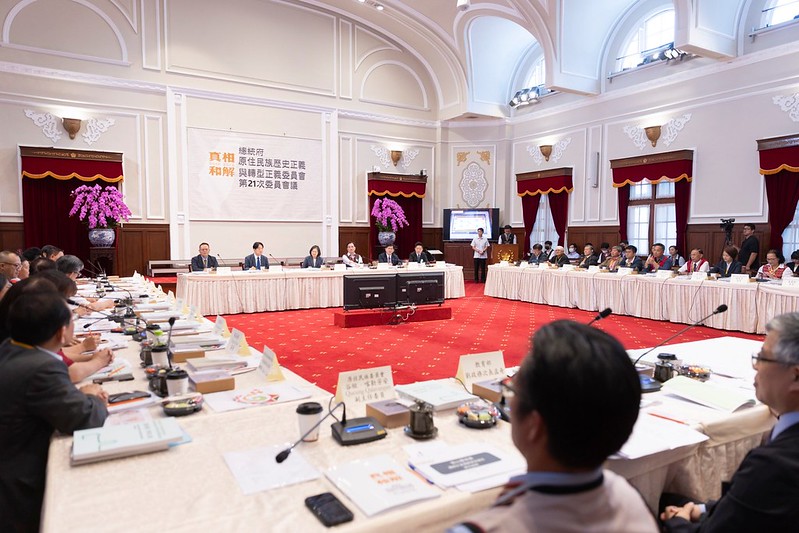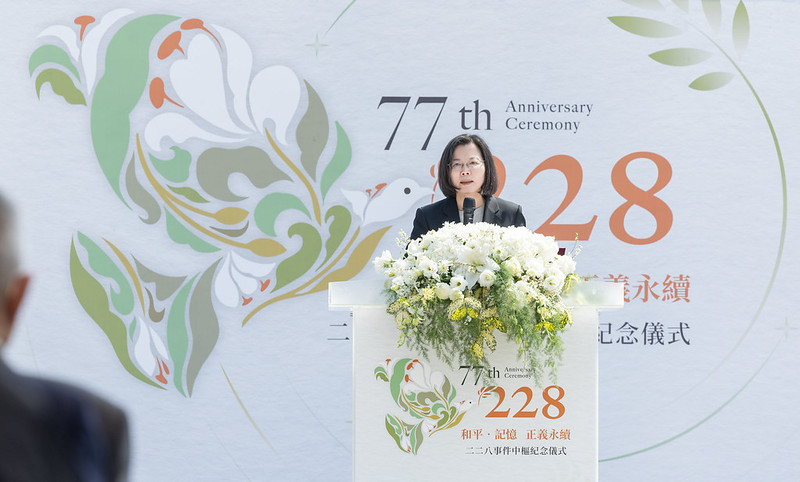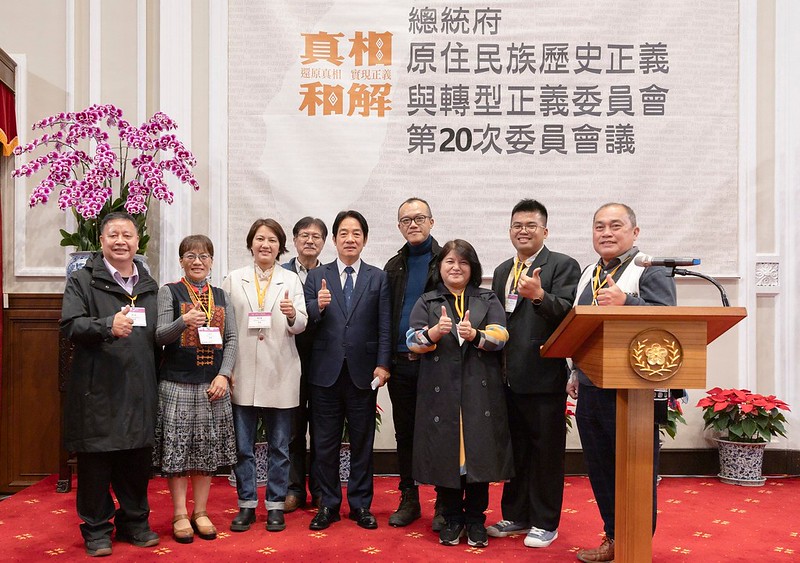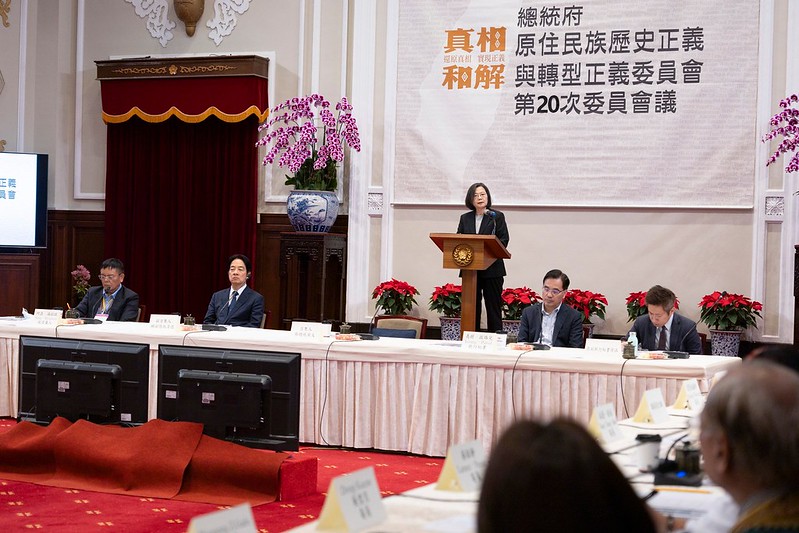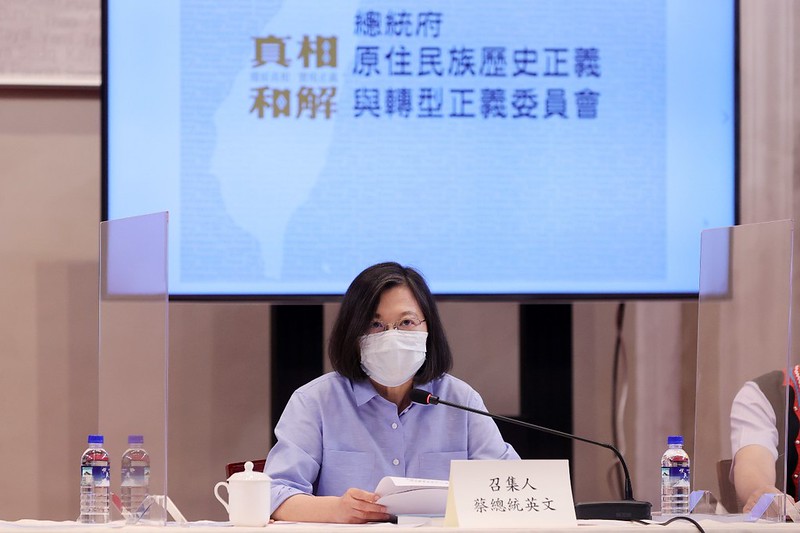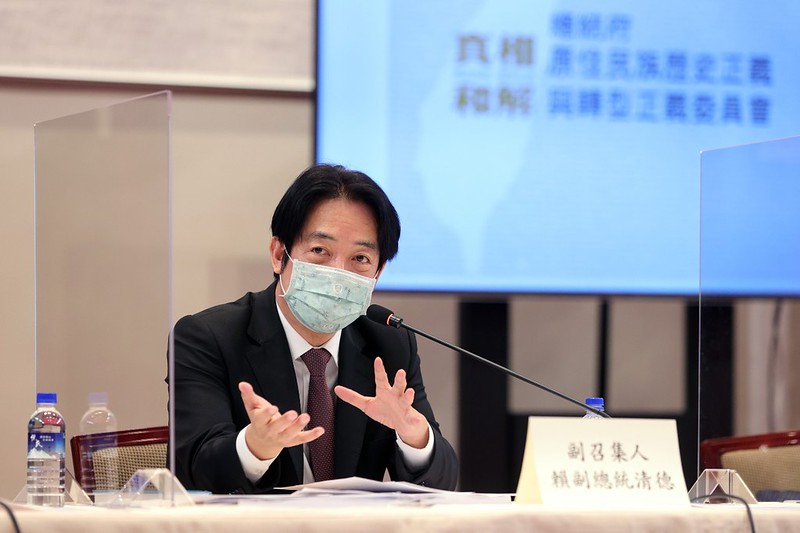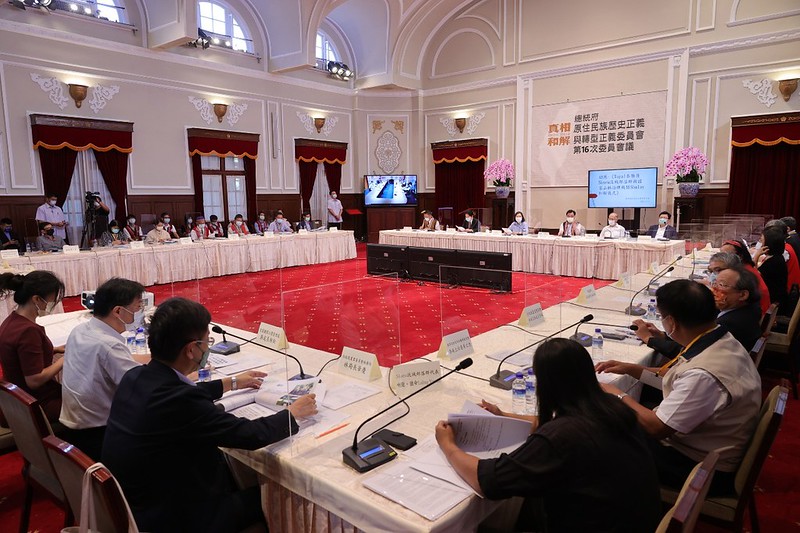News & activities
 News releases
News releases
On September 10, President Tsai Ing-wen presided over the 16th meeting of the Presidential Office Indigenous Historical Justice and Transitional Justice Committee as committee convener, with Vice President Lai Ching-te attending as deputy convener.
In her opening remarks, President Tsai noted that this committee was established at the Presidential Office both to address current issues through direct dialogue and to continue our efforts to restore historical truth and promote ethnic reconciliation. As an example of these efforts, President Tsai visited Wufeng Township, Hsinchu County this past April to witness a Sbalay reconciliation ceremony between the Atayal indigenous communities of the Skaru watershed, the Forestry Bureau, and Shei-Pa National Park Headquarters.
The meeting's first report was on this reconciliation ceremony, and included presentations by Veterans Affairs Council Deputy Minister Lee Wen-chung (李文忠), Forestry Bureau Director General Lin Hwa-ching (林華慶), Shei-Pa National Park Headquarters Director Chang Wei-chuan (張維銓), representative of the Skaru watershed tribal communities Laling Yumin, and Council of Indigenous Peoples Minister Icyang Parod.
President Tsai thanked the government agencies and indigenous peoples who participated in the reconciliation process and gave presentations, and expressed hope that this case involving the Skaru watershed tribal communities will become an important precedent.
In his capacity as chair of the Subcommittee on Reconciliation, Vice Minister of Culture Lee Lien-chuan (李連權) delivered the meeting's second report, which was on the results of the exhibition organized by the Ministry of Culture this past August to mark Indigenous Peoples' Day. The exhibition was titled "ita/kita," which mean "us" in many of Taiwan's indigenous languages.
Minister Icyang Parod, as executive secretary of the committee, then explained that Committee Deputy Convener Alang Manglavan and the committee members had reached a consensus to put 38 member proposals on the meeting agenda. After reviewing each of these proposals, it was suggested that one proposal involving self-government laws be handled at a dedicated meeting, and that the other 37 proposals be referred by the Executive Yuan to the relevant agencies for further consideration and responses.
Vice President Lai, presiding in lieu of President Tsai, then delivered concluding remarks to the committee members.
In his remarks, Vice President Lai said he was moved by the report on the Sbalay reconciliation ceremony, and expressed his belief that the ceremony will not only help resolve similar issues involving Taiwan's indigenous peoples, as President Tsai said, but that it has further significance, in that indigenous peoples were the earliest inhabitants of this land and accepted and welcomed those who arrived later. The vice president added that, given its size, Taiwan would be a more harmonious place if people throughout this land could display the spirit and open-mindedness of the Sbalay ceremony, and emphasized that Taiwan belongs to all its 23 million people, regardless of when they arrived.
Noting that President Tsai's apology to indigenous peoples included the Pingpu peoples, Vice President Lai pointed out that the Indigenous Historical Justice and Transitional Justice Committee set up by the Presidential Office has also invited Pingpu people to attend its meetings, and stated the need to actively research a way to rectify the name "Pingpu."
Also in attendance at the meeting were Deputy Secretary-General to the President Li Chun-yi (李俊俋) in his capacity as deputy executive secretary of the committee, Minister without Portfolio Lin Wan-i (林萬億), Minister of Culture Lee Yung-te (李永得), and 27 committee members participating via video from Taipei, Hualien, Taitung, and Kaohsiung.
